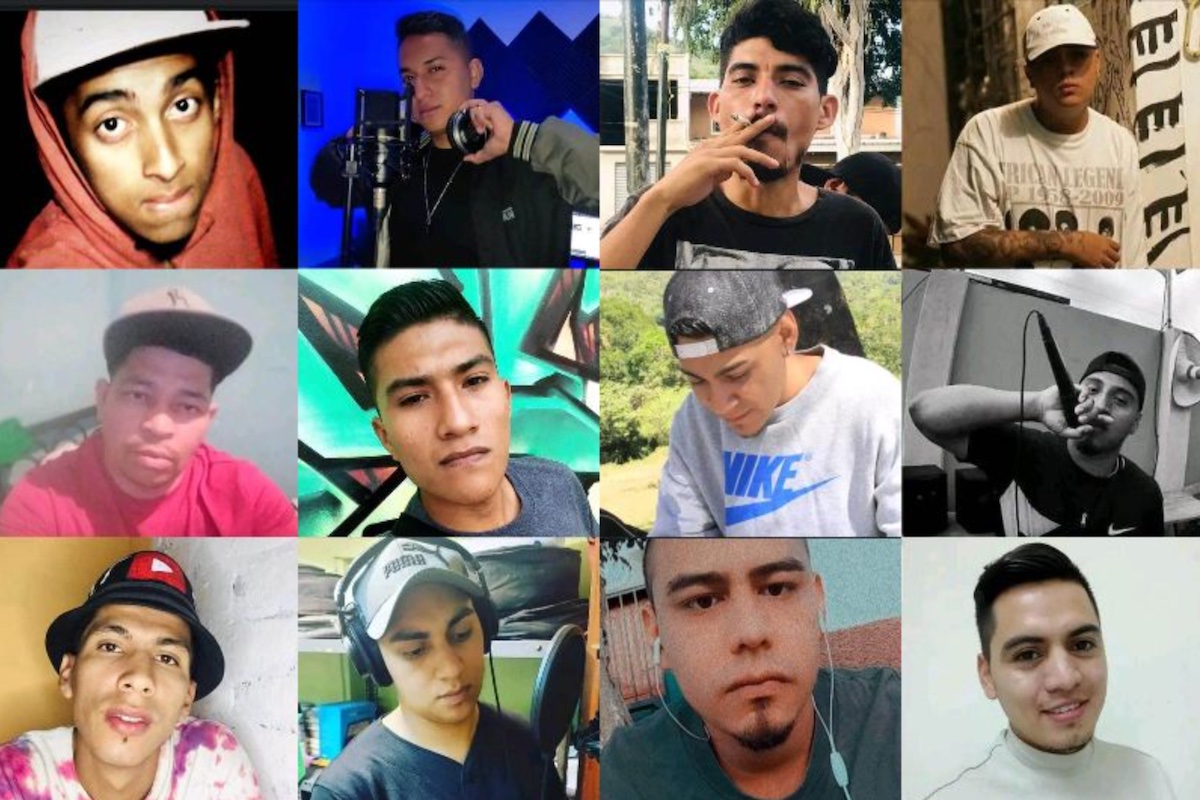

Salvadoran hip-hop collectives circulated photographs of some of the rappers and freestylers imprisoned under the state of exception. “Justice for our brothers!” one message read.
Today’s newsletter, deepening our reporting on the human rights crisis inside Salvadoran prisons, was written by Nelson Rauda and edited by Roman Gressier and José Luis Sanz.
A Truth Commission-Style report
A 98-page exposé on deaths and torture in Salvadoran prisons under the state of exception made international headlines last month. NGO Cristosal gathered hundreds of testimonies from survivors of the country’s gruesome prisons and verified the death of 139 inmates.
Zaira Navas, legal director for the human rights organization, said in an interview with Julia Gavarrete for El Faro English that evidence of a state policy of “systematic torture” —including beatings to the point of organ failure, electrical shocks, people’s knees bleeding from forced kneeling on gravel— could one day help bring top officials before justice.
“We’re talking about systematic deaths with similar patterns, which happen in the same way, against the same people,” she asserts. “Denunciations and documentation of cases will be very relevant for a prosecutor from the International Criminal Court to identify that there should be an investigation.”
NGOs in Central America often fill the gaps that states leave behind. Cristosal’s report reads like what one might expect from the Human Rights Ombudsman (PDDH).
In addition to formerly leading internal investigations for the National Civil Police, Navas was indeed chief PDDH investigator. Former ombudsman David Morales is now the head of Transitional Justice at Cristosal.
The way the report described the chain of command is the same argument that Morales has used in court while representing the victims of El Mozote in criminal charges against the old guard of the Salvadoran Army and security apparatus.
In contrast, when elected by ruling-party lawmakers last October, current Ombudswoman Raquel Caballero said she wanted to focus on the country’s “real problems” and not the state of exception, which she dismissed as a “juncture.”
At Least 15 Rappers Jailed
Navas said they also noticed that most of the hundreds of people released from prison after weeks or months of arbitrary detention were not gang members, but rather schoolteachers, bricklayers, or farmers.
Nelson Hernández, a North Carolina hip-hop artist who worked in the U.S. installing floors, was arrested in January while visiting El Salvador for his wedding.
El Faro’s Efren Lemus reports that the evidence against him are his YouTube music videos, where he name-dropped his neighborhood of birth in Nahuizalco, a predominantly Nahuat-Pipil Indigenous town in western El Salvador.
Police called him an “apologist for terrorism” because the neighborhood used to be controlled by gangs, for looking “nervous” when police stopped him, and because he rapped about his beefs in the world of hip-hop.
Hernández is one of 15 rappers arrested during the state of exception, driving a rift among hip-hop collectives over some artists’ support for the government.
Carlos Marroquín, a lead negotiator with the gangs on behalf of Bukele, is a rapper and part of the scene, too, under the stage name Slipt.
Shout-out to our translator extraordinaire Max Granger for taking on both of these pieces this week. One last thing: El Faro’s annual Central American Journalism Forum (ForoCAP) is back! We’ll be in Antigua Guatemala from October 25 to 28! More details soon.
Help us continue reporting on work of human right defenders and brave people who share their stories by becoming a crowdfunder at support.elfaro.net.


